#CHEAP LEGAL
Explore tagged Tumblr posts
Text
CHEAP LEGAL TRANSLATION NEAR ME – CHEAP LEGAL TRANSLATION OFFICE NEAR ME
0 notes
Text
it's funny whenever i post dinluke i always get comments along the lines of "why do people ship these two they only met once" and its like bestie. babygirl. ok first off it's about the Themes™/dynamics/potential, not how many times they've met in "canon" and 2. when i was a teenager the biggest ship in my favourite fandom was two guys who'd never even interacted and you think its weird people ship two guys that acually met?? in real life canon?? they literally made eye contact, that's like the fanon-shipping equivalent of third base
#dinluke do make me go insane and u need a certain level of ignoring the mandalorian season 3 and also tbobf to Get it#the really short version is it's “parent dates child's teacher trope” and “they both have the same reuniting-their-massacred-people thing”#also it's comedic to ship the guy who's constantly avoiding the plot and clueless abt sw with the force's specialest star#talk is cheap#the two guys in the other fandom had arguably been in the same city one time and one was the other's legally-dead-brother's former coworker#and that was it. the rest of it was just Pure Vibes and Themes#im not saying what fandom it's just gotta be a 'what were YOU doing at the devils sacrement' situation#dinluke
2K notes
·
View notes
Note
May I ask what were the best transformers media you ever saw/read?
Well Transformers Prime, Transformers 1986 and IDW comics are having the first place that’s for sure
And then the second place is kind of shared by Fall of Cybertron, Exodus, Prime wars trilogy, Robots in disguise(2001) and Transformers One.
The third place goes to G1, Animated, Earthspark, Armada, War for Cybertron Netflix series, Aligned Robots in disguise, Bumblebee, Rise of the Beasts and Cyberverse because I only liked some little parts of them.
And then I also saw some of the Bay movies, Victory and Headmasters and didn’t like them at all.
Separate first place for J-Decker. It is not exactly Transformers but it is a show about giant robots and I loved it
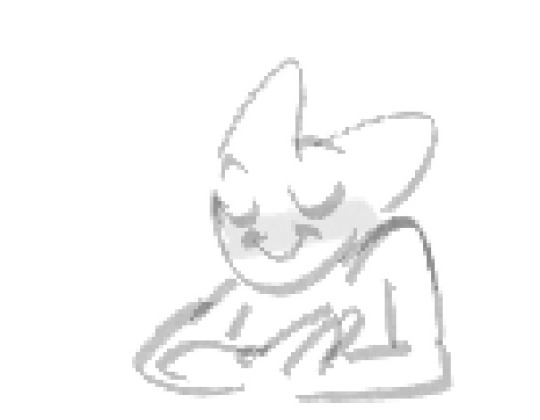
#call me weird for placing cheap ugly shows above Earthspark and Animated#but the thing is#I have when the whole narrative revolves around human kids#*hate#I’m allergic to them#Prime wars trilogy had one of the worst face rigs I ever saw#but it also had Overlord teaming up with evil Rodimus and Megatron being funniest mf alive#Armada is straight up infuriating imma be honest#Armada is like#Au where all the weapons work only once and then just create some glitter#I actually have SO many thoughts on Armada. like. as a writer#the way they keep reusing the same plot 3000 times is borderline impressive#OH War for Cybertron from Netflix was such an experience!#It was so painfully boring and stupid sometimes#but the other times. ooooouuufff. The scene where some nameless decepticon gives Megatron a little tour to show him how him and his friends#-work so hard for the cause??? THAT SHIT HIT HARD#….also I pretty much only like the Quintesson apocalypse arc from the entire Cyberverse#Transformers Victory is fun until you actually hear them speaking#the concept of Star Saber adopting a human child and raising him and then#going to human school as his legal guardian being like ‘yeah sure I can sign all your tiny ass documents’#it’s hilarious but unfortunately all the writers of that anime were snorting cocaine because WHY all the characters talk like that#Animated was fun for me only near the end. Idk what to say. I’m not a fan of any drama centered around humans#things got interesting when Cybertronian government got involved#Earthspark is WHOLE giant topic ahahah. I liked Twitch. sometimes. I also liked Grimlock while he had voice lines. Prowl was fun.#everything else needs and essay haha I don’t wanna annoy anyone#OH I also watching Tf Cybertron right now and this shit is UGLY. they have NO RIGS. THEY HAVE ONE EXPRESSION EACH#but for some fucked up reason I love it. they got the guy named Landmine who only can have (-_-) face.#their Megatron actually respects Starscream so far and regularly gives him positive reinforcement??? I heard words ‘excellent job Starscrea#and went WAIT WHAT#Anyway. If you ask me to ramble about media you get a word tsunami. I have a lot to share
306 notes
·
View notes
Text
[*The camera has switched perspective. There are a couple dog boys running about the green room, some resting from their little excursion and some dragging out their new 'friend'.]
[*The 'leader' of the group is excitedly talking to Ramb,]
...So, what is it you wanted to show me?
♪♬♪!
Nabbed a target, eh? Hm...
...I dont think the ol' wanker was being literal when he said to bring the bloke tied up in a pretty ribbon.
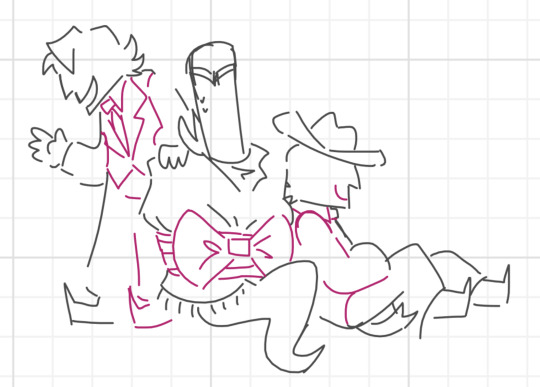
♪♪....
No, no, I can't imagine he'll be upset.
What's the plan, then? Water damage? Brass knuckles? Non lethal shots?
...Or, are you supposed to kill this bloke?
[*The dog boy shrugs. Ramb sighs, stepping on his tiptoes to pet the Shadowguy, who quickly crouches down to make it easier to reach, his small raggedy tail wagging.]
You lot are so unorganized...
//Ramb AND the Shadowguys can now be sent asks!
Also @its-just-showbiz new thread can start here heh.
44 notes
·
View notes
Text
#tiktok#us politics#us government#immigration law#immigration#immigrants#immigration and customs enforcement#immigration attorney#fuck ice#mass deportations#trump deportations#illegal immigration#illegal immigrants#legal immigrants#legal immigration#illegal deportation#due process#cheap labor#us economy#polls
18 notes
·
View notes
Text
Analyzing the Names of the Arakawa School Rakugoka (2/2)
The continuation and conclusion of last week's post, which covered Miroku, Kiroku, and the Shiguma school. This time: everyone else!
Let's get back into it!
Arakawa Isshou 阿良川 一生
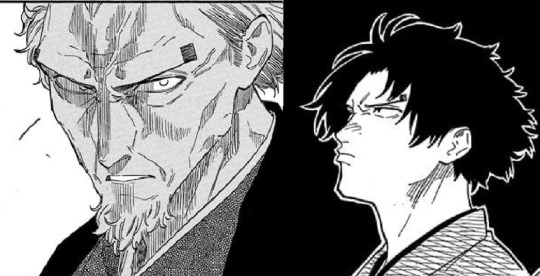
As Urara notes for us in Chapter 139, Isshou still uses the ki kanji in his name, but of course the English doesn’t have a way of telling us which of the kanji in his new name that is, absent translator’s notes. As the reader with a good memory for kanji/willing to reread last week's post will note, it’s the latter – 生 ki in Kiroku becomes 生 shou in Isshou. With the different reading, the sense of the meaning changes; rather than being about uncut purity, it becomes reflective of life, existence, or the self.
The 一 ii kanji was also in Kyouichi’s name, read there as 一 ichi, and it has the same meaning here, “one.” It can also signify that something is the first, the best, the top, the beginning, as well as refer to a single individual among many, and so on.
In a first for this analysis, though, the kanji do have a defined meaning together as well: 一生 isshou means a lifetime, a generation, an era, the breadth of one’s whole existence, and other such words for encompassing the entirety of a discrete “something” that can be said to begin and end. When used in a possessive sense towards other words, it can also connote that the other word is a once-in-a-lifetime or lifetime-best version of whatever’s being discussed – purchases, opportunities, and so forth.
Quite the lofty word, but then Isshou is quite the lofty man, in reputation, mentality and ambition. And he’s not certainly unaware of the weight he’s taking on – when he says, with grim conviction, “I need to atone for this for my entire life,” in Chapter 139, he uses the word isshou.
• Kashiwaya Kisoba / 柏家 生そば: I've covered most of this pretty clearly by now, but as a refresher, Kashiwaya is basically “house of oak/cypress,” while we're back to the ki reading of 生. The そば soba I would normally chalk up as hiragana we can’t be 100% sure of the meaning for, but of course we have a pretty good idea what the reference was here: the story that changed Isshou's life when he saw Kiroku perform it, “Time Soba,” and one that clearly stuck with him, as he chose it for his own first performance as well. Indeed, the reference actually goes further than is visible in English, as the Japanese title of the story is “時そば” – “Tokisoba.” Note how, while it uses a different kanji, the spoken pronunciation of the story's name contains the name of the performer telling it!
• Kurogane ?? / 黒鉄 ??: Unlike Shiguma, we've not yet gotten Isshou's birth name in full, but we do at least have his family name, Kurogane. It's pretty straightfoward, and if you've been hanging around the anime sphere for a while, you've probably encountered it before, albeit with a few different spellings. Here, 黒 kuro means “black” and 鉄 gane[1] means “iron.” Note the obvious contrast between his and Shiguma's family names: Kurogane, black iron, and Shiranami, white waves!
1: More typically read either tetsu or kurogane in and of itself! Mashed together with the black kanji doesn’t make the whole thing read kurokurogane, though; the middle kuro just gets dropped.
The kanji – both 鉄 gane itself and particularly when combined with 黒 kuro – are often, in my experience,[2] associated with heavy industry, especially trains. This is backed up by the newspaper in Chapter 133, which shows a man we can assume to be Isshou’s father, the head of some sort of extremely wealthy company that was raking in money from government contracts due to the needs of the Olympics.[3]
2: This is possibly slanted heavily by the era of anime I was first exposed to; “kurogane” was a popular word in manga and anime titles in the early ‘oughts.
3: The Tokyo Summer Olympics of 1964 – the same year Urara’s flashback begins! – was the first time the games had been hosted by a country in Asia, and Tokyo overhauled and modernized pretty much its entire infrastructure in expectation of the flood of tourists and international attention. Famously, the opening of the Shinkansen, the world’s first high-speed rail train, was timed to coincide with the Olympics, beginning operations just a week and a half prior to the first day of the games.
One other potentially interesting thing here: 鉄 gane is another character that were subject to that orthographic overhaul in 1946! Prior to the reform, 鉄 was instead written as 鐵. However, as mentioned, there was an explicit exemption made for characters that were used in proper names, meaning that Isshou’s father was not forced by the government to change how his family name was written; he chose to do so of his volition.
So in the same timeframe that we see rakugoka adhering to old hiragana in their names nearly twenty years after the reform, we have Isshou’s father, so wrapped up in modernization that he has gone above and beyond legal requirements and proactively updated his name to the new writing system. Isshou, disowned for “wanting to make his own way in the world,” winds up finding his passion in just about the most diametrically opposed lifestyle he could hope to find: instead of a hyper-modern titan of industry, he becomes a towering figure of the traditional arts.[4]
4: And, let me add, not arts that enjoyed the most glowing of reputations at the time, either. As we can see from Kiroku’s yakuza acquaintance, and as fellow rakugo manga Showa Genroku Rakugo Shinjuu depicts at considerably more length, rakugo in the post-war period struggled to find its footing, a dying art that was too old to be appealing in a modernizing world, too populist to be regarded as classy, and too disreputable to attract much outside support. Rakugo doesn’t just tell stories about the “floating world,” as that fantasy-scape Edo setting is called; its tellers came of age there as well, and thus had their own connections to other people living those crucial steps removed from acceptable, proper society. It wasn’t until well into the 60s and 70s that certain critics and publishers started to rehabilitate rakugo’s public perception by calling it a “classic art.” Note how this timeframe coincides with Saitou-san (the critic)’s description of Shiguma’s career when he’s discussing it with Akane.
Unlike the other characters’ real names, Kurogane with the kanji arrangement we’re given does not seem, from what I can find, to be a real family name. Kurogane is more typically spelled by either using 鉄 kurogane alone or subbing in a different gane kanji (金), one that means metal or money, among more metaphorical uses for hard or precious things. There’s a manga artist who writes under 黒鉄, but it’s a pseudonym, not his birth name. However, it does turn up as a spelling for lots of anime character names, so at least in the land of fictional hardasses, Isshou’s family is not so out of place.
Isshou’s Students
Their name inheritance patterns are way clearer than Shiguma's students, befitting Isshou’s more demanding, more controlling approach. I’ll talk about the two who are Akane’s peers here, but keep in mind that Isshou’s first apprentice (that we know of) was actually Ikken, whose branch I’ll be discussing next.
One fun commonality between Kaisei and Kaichi: even though we get relatively extensive flashbacks for both of them, the story scrupulously avoids naming them at any point in those pre-rakugo stages of their lives. So while Akane is still going by her regular name, implying some lenience from both Shiguma and, oddly, Isshou himself in not forcing an apprentice name on her, the same is very decidedly not true for Kaisei and Kaichi.
Kaisei / 魁生
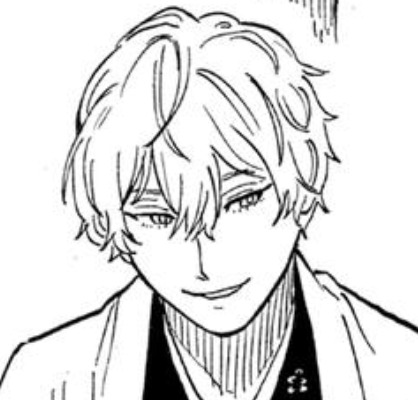
Alternating from Ikken, who took the 一 ii, Kaisei takes the 生 shou. We find it has yet another reading here, 生 sei, but the meaning is the same as it is for 生 shou: life/existence/self. Pertinently for Kaisei’s role, 生 sei when used as a suffix can also denote someone as a student.[5]
5: The word for student is 学生 gakusei, using the kanji meaning “study/learning” and “life/self.” For the curious, sensei takes the same second kanji, with the first being 先, meaning former or previous.
The new kanji in his name is 魁 kai, meaning “charging ahead of others.” Quite the change from most of the kanji I’ve talked about up to now, which have had several different meanings apiece, this one means that and nothing else! Attached to other kanji, you can get words like ringleader, chief, pioneer, forerunner, and so on, but by itself, it just denotes that idea of running ahead of others.
Combined with that life/existence/self kanji, the meaning is clear – “one who charges ahead of others” – and that is certainly what Kaisei did. Indeed, if the circumstances in which he got the name were anything like those in which Kaichi got his, he would have had to, lest he face expulsion. Ikken even says something that could well imply this when talking to the reporter in Chapter 52: “Losing is not an option for him.”
Kaichi / 嘉一
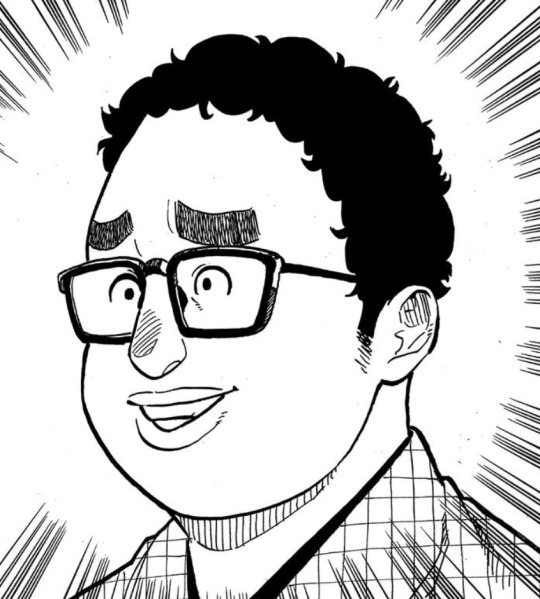
While you’d think just from the romanization of the names that Kaisei and Kaichi share a kai kanji, Kaichi doesn’t actually have a kai kanji at all – his name breaks down to 嘉 ka and 一 ichi instead. Thus, as Kaisei takes the latter of Isshou’s kanji, Kaichi takes the former, read here the same as it is in Kyouji’s original name: 一 ichi, the numeral 1, the first/best/foremost.
We get a textual explanation in Chapter 64, which Viz renders as, “To put good outcomes first and foremost, I give you the stage name of Kaichi, with the kanji for ‘joyous’ and ‘one.’” To this, I would add only that while 嘉 ka can mean “happy,” and “joyous” is a reasonable way to localize that to what I assume Isshou’s character voice must be like, the more pertinent meanings are “applaud” and “praise.” That’s what Kaichi’s there to do, what he stakes his existence as a rakugoka on: prioritizing the audience’s applause above anything else, no matter what.
Arakawa Ikken 阿良川 一剣
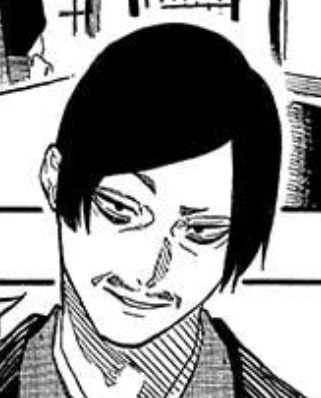
As should be pretty visible at this point, Ikken takes the 一 ii kanji from Isshou (note that Ikken also has a doubled consonant signifying that the preceding vowel is a repeated sound) – appropriate for the man who is, so far as we know, Isshou’s actual first apprentice. The other kanji, then, is 剣 ken, which means exactly what you think it means if you’ve watched a lot of pre-firearms action anime: “sword.” Given Ikken’s own words about Isshou’s ambitions (Chapter 52 again), Isshou naming his first apprentice “first blade” certainly makes for quite the statement of intent!
It’s interesting to consider whether Ikken has quite lived up to that name, in Isshou’s eyes, given the way the latter’s been grooming Kaisei into “the embodiment of his ideals.” That sort of character analysis is a bit beyond the scope of this piece, but we can say that Ikken does a lot of pushing at the boundaries of the rakugo world, pressing it into other spheres, engaging with the media, being a well-known screen actor, and so forth. Also too, whether or not he’s quite become what Isshou wanted, they still have a close relationship,[6] and it’s very possible that Isshou’s goals and intentions have changed over the years. As Ikken himself says to Kaisei in Chapter 117, “something happened” to change Isshou after Taizen’s promotion but before the expulsion incident. So it’s anyone’s guess how that change may have affected Isshou’s relationships with his peers and student(s), and likewise his views on their careers.
6: Ikken certainly wasn’t expelled, and we know Isshou’s not afraid to do that! But it goes well beyond the bar-on-the-floor level of “not expelled” – they hold master/student performances together, which Isshou certainly wouldn’t do with just anyone, but Ikken’s also with Isshou very frequently – Akane meets him at the man’s house, they arrive together with Kaisei (who actually lives with Isshou) for Maikeru’s promotion test, and then there’s that whole scene with the newspaper in Chapter 128. Which I absolutely love, by the way – I love watching Isshou and Ikken interact, and I’m very much hoping that, in the process of filling in more of the backstory, we get to see some of what Ikken was like in his pre-shin’uchi days, the interplay of an increasingly strict master and a student who will eventually be called The Hedonist.
Ikken’s Students
Kendama / けん玉
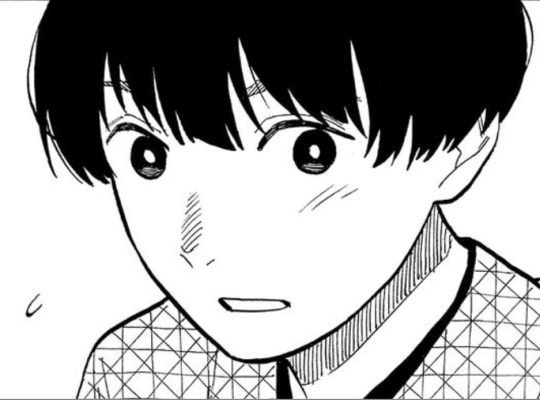
Though ken is a valid reading for a lot of wildly different kanji, Kendama is presumably taking the one from Ikken, though Tama-chan here[7] uses the hiragana rather than Ikken’s 剣 kanji. 玉 dama, meanwhile, can refer to virtually any sufficiently spherical object, but particularly round jewels and balls. It also turns up in a lot of grade-school jokes about testicles, jokes about balls being a place where English and Japanese slang overlap perfectly.
7: The shift from -dama to Tama is another inflection change based on reading and what other words are in proximity to 玉, just like the kuma/guma one I discussed in Koguma’s section last week.
Kendama is another name, though, that does refer in its entirety to a real thing – a kendama, spelled the same way as Tama-chan’s name (けん玉), is a classic Japanese children’s toy, a variant of the cup-and-ball game that can be found all over the world. It’s named as such because it has both a ball (the 玉 dama part) and a spike (for the けん ken) on the top – the ball can be caught in either of the two cups on the toy’s side, but it also has a hole in it so that it can be caught on the spike.
Hikaru / ひかる
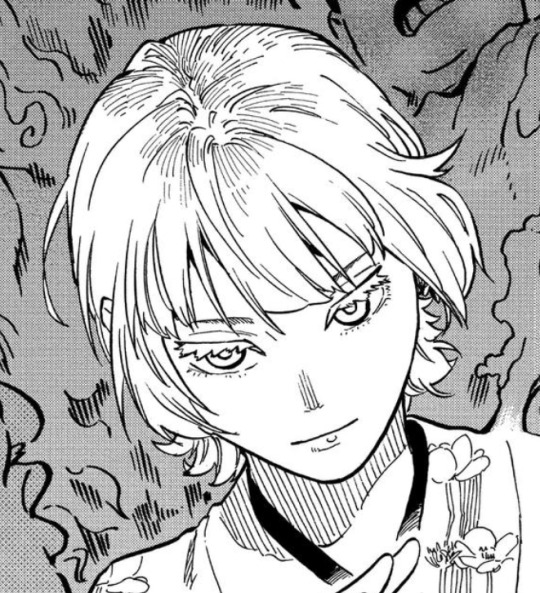
Nice and straightforward, even without the kanji – hikaru is a verb meaning to shine, to glitter, to gleam, etc. A very common Japanese unisex name.[8] Like Akane, Hikaru keeps her real name as her stage name – unless Hikaru was already her voice actress stage name, of course. There’s been no indication of that so far, but I wouldn’t be shocked, given Hikaru’s thing about hiding the signifiers of her background. It’s also possible that she just uses different spellings, for example by using hiragana for her stage name, while her real name uses kanji[9] – probably 光, but Hikaru is common enough that there are a lot of eccentric ways to spell it with different kanji.
8: See lead male characters in e.g. The Summer Hikaru Died, Hikaru no Go, and the original Macross, compared to prominent female characters in Magic Knight Rayearth, Medalist, and our own Akane Banashi. Hikari, the noun form from which Hikaru derives, is likewise unisex, but leans more feminine.
9: For any readers who are here from my My Hero Academia posts, Toga Himiko does this same thing: her real name is spelled with kanji, while her Villain name is the same name spelled out phonetically in katakana.
Kouragi / 高良木: Hikaru’s family name consists of kanji meaning, respectively, tall/high (高 kou), good quality/pleasing (良 ra), and tree/wood (木 gi). Not an extant family name, so far as I can tell, even with different kanji, but it is only one kanji off from the extant names Kuragi/Kyuuragi, which swaps out the 高 kou kanji for 久 ku/kyuu meaning “long time” or “old story,” and likewise Koura, which simply doesn’t include the 木 gi. So it may be a construction formed from existing last names.
Kenbishi / 剣びし (unconfirmed)
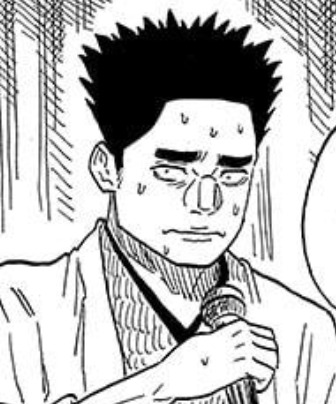
We don’t know this for sure, but I would consider it relatively likely that Arakawa Kenbishi, the emcee at Maikeru’s promotion test, is a graduated student of Ikken’s. Note how his 剣 ken kanji is the same as Ikken’s, and how we’re introduced to him doing entertainment stuff that’s adjacent to rakugo rather than being rakugo itself – appropriate for the student of a man who himself dabbles in other fields so as to leverage his popularity there to get more eyes on rakugo.
The びし bishi doesn’t have a clear meaning that jumps out to me. Among other things, it’s a reading for kanji that refer to a god or goddess of beauty (美神 bishin) such as Venus, as well for the bixi (贔屓 bishi or hiki), a mythological Chinese dragon with a stone tortoise shell. It’s also common in onomatopoeia for splashing sounds.
Arakawa Zenshou 阿良川 全生
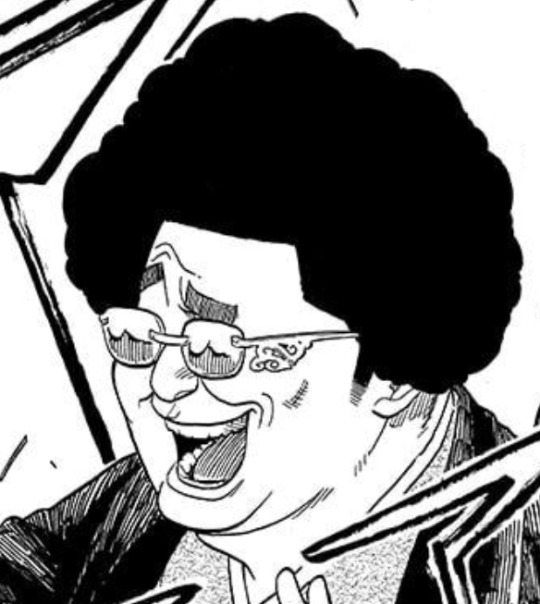
Zenshou, though the story has yet to make a big deal about it, is another student taught by Kiroku, rather than a student of Shiguma’s or Isshou’s. There’s a lineage graph in some chapter or another showing it, but there are other signifiers throughout the series, like the way he interacts with Isshou. He calls Isshou aniki the same way Shiguma does, which normally would only prove that he’s a younger pupil in the same generation they are, save that he’s an Arakawa rakugoka, and being an Arakawa of the same generation as those two means there’s only one master he could have.
The other thing that indicates that lineage? His name. He has the same 生 shou kanji that Isshou does, the one Isshou inherited from Kiroku. Thus, in the same way that Isshou would go on to rotate his name kanji between his three known students, with Ikken and Kaichi getting the 一 and Kaisei getting the 生, Kiroku seems to have done the same, giving the 生 to Kisoba(/Isshou) and Zenshou, with Rokuen(/Shiguma), falling between the two and getting the 禄.
That said, the 生 shou is, of course, that life/self/existence kanji reading again. The 全 zen, meanwhile, refers to completeness of a count – it can mean “all” or “every,” as well as “whole” or “complete/completely.” It’s thus a similar meaning as isshou, but instead of giving a sense of the singularity of one life, whole and complete, or the primacy of a certain experience within one’s life, zenshou instead gives me the sense of focusing on the fullness of everything contained within one’s life – breadth rather than height, if you will. I said isshou is, in and of itself, a word with a defined meaning (a lifetime, an era, a generation, etc.); the same isn’t quite true for zenshou, but it’s close. 全生涯 zenshougai adds the kanji 涯 gai, meaning things like horizon, shore, or limit, to result in a phrase meaning “one’s whole life.”
This is entirely my own impression, but Zenshou feels like a more generous, forgiving, accepting name than Isshou – that focus on the fullness of a life rather than the singularity of a life leaves more room for failings, faults, fuck-ups and foibles. And that, in its way, makes it a very fitting name for a man considerably more foible-prone than Arakawa Isshou: the temperamental, petty, yet unfailingly honest to his truth Arakawa Zenshou.
Zenshou’s Students
He’s got three that we know of, and unlike Kiroku and Isshou, he seems to have made no attempt to rotate kanji between them; all three contain kanji or hiragana that read as zen. It may be that, given his selfishness, he simply prefers to name his students after the portion of his name that originated with him, or perhaps, given its turbulent history, he’s just reluctant to pass on the rather troubled 生 shou. As with Isshou, I’ll cover his current students here and his graduated shin’uchi student in the following section.
Yuuzen / 悠全
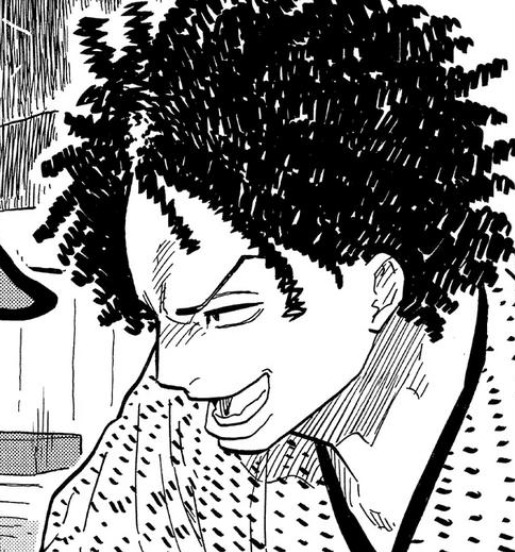
The 悠 yuu here has several options given for translations, but the two major threads are words like composed/calm/leisurely and words like distant/boundless/eternal. The 全 zen, as before, means “all” or “whole.” Together, you get a name that is…not remotely apt for Arakawa Yuuzen, who’s competitive, argumentative, prone to goading others, and not remotely calm or leisurely. This begs the question of whether Zenshou just liked the sound of the name, was giving it as a directive, or imparting it as a hope.
We haven’t seen much of his rakugo, but the crowd response has always seemed positive! He leaves the stage satisfied with his own performances, but then gets shown up by later performers. Both times we’ve seen him, he’s been at “rising star”-type events, so despite the narrative tending to treat him (and his junior apprentice Zenmai) a bit shabbily, using them to demonstrate the superior skills of those around them, he’s certainly not doing poorly in his career; he’s just not a stratospheric talent everyone’s talking about.
(Honestly, Zenshou complains and kvetches a lot, but he’s still regarded as a member of the Arch Four, and so far as I can recall, no one but Zenshou himself has ever so much as implied that he’s in any way the “lesser” of the four. He laments his lack of ability with stirring human drama, but he’s called the King of Comedy – as Akane’s friend Jumbo pointed out early on, you want people to laugh in rakugo! If he and his students are making audiences laugh, it sounds like they’re doing their job just fine to me!)
It may be worth noting that, when rendered with different kanji, the word yuuzen (油然) can be a descriptive word indicating that something is, or is happening in a manner that is, copious, free-flowing, or gushing. This is more accurate to Yuuzen’s actual characterization and, from what little we see of it, his performing style as well. A similar dichotomy is present with Taizen, as I’ll discuss presently.
Zenmai / ぜんまい
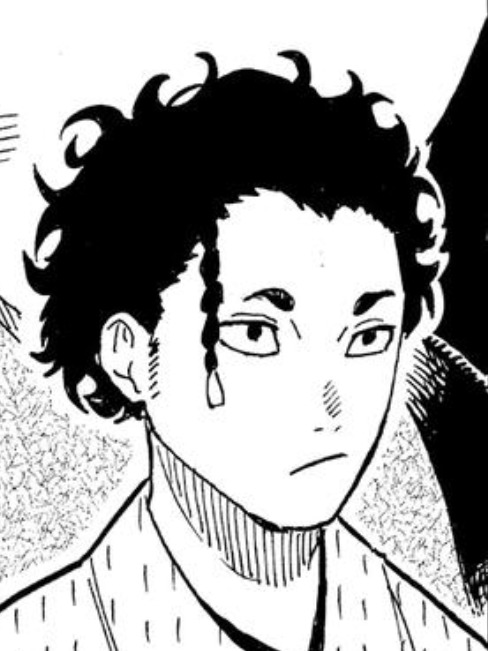
This one’s harder to parse since it’s all hiragana. As a single word, zenmai can refer to a specific type of Japanese fern, as well as a spring, but while both of those are typically written in hiragana, the same way Zenmai’s name is, their proper kanji are both different from the one we can assume his name is referencing.[10]
10: Though the fern and spring kanji are different, their etymology is related: the type of spring the zenmai reading refers to is neither the season nor the water source, but rather the mechanical device, in this case a flat, disc-shaped spiral curling in on itself in the way of a young fern that hasn’t unfurled yet. This resemblance is why it was named after the Japanese fern zenmai. Fun fact: many places in the world harvest not-fully-grown ferns as an edible vegetable. In English, we call this vegetable a fiddlehead, named after the decoration on the head of a violin; in Japan, it’s called warabimaki, “bracken roll.” Different ferns are used for this in different global regions; in Japan, one of them is the Asian royal fern, Osmunda japonica – the zenmai.
The zen part is presumably the same that’s in Zenshou’s name, but many different kanji can be read as mai, especially if you include name-only readings. Of the ones that look even semi-plausible, there’s an archaic one meaning gift or offering, one meaning “every” that’s used for days or occasions (think “every day,” “every summer,” “every year,” and so on), one referring to a style of Japanese dance, and name-only readings for kanji variously meaning “in front of/before,” “sow” (as with seeds) or “shepherd/care for/pasture”.
Again, without knowing the kanji, it’s hard to say what Zenshou’s intent was with this name. But that’s not a problem for his other known student, and with that we hit the last, newest, and youngest of the Arch Four.
Arakawa Taizen 阿良川 泰全
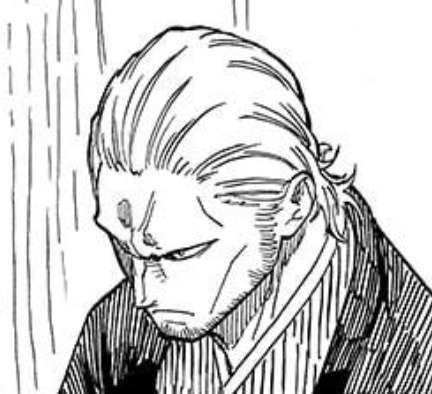
Our new kanji here is 泰 tai, which, not unlike 悠 yuu, means calm, tranquil, peaceful, and so forth. It also turns up in words involving greatness and power, however, in what I take to be[11] leaning on the homophonous tai of 大 (meaning big or large; we saw the closely related and sometimes identically pronounced 太 in Shinta’s name last week) with a resulting connotation of effortless, overwhelming power – power that is peaceful because it’s so over-the-top it never has to exert itself. So Taizen as-read would be another name like Yuuzen’s in which the kanji denote an overarching totality of peacefulness – an interesting indicator of where Zenshou’s heart may be about the discord in the Arakawa school for all his bluster, but certainly a poor descriptor of Taizen the person or his performing style!
11: By which I mean, “Take the following with an even larger than usual grain of salt; my resources don’t explain this so I’m guessing based on what they do say.”
However, as is also the case with Yuuzen, taizen is also a reading for a different word that serves as a much better description of the man’s personality: rendering zen with 然 instead of 全 gives you taizen as 泰然, a word that means composed, self-possessed, or firm. I wonder if we might read this as an indicator that parting from Zenshou’s intentions will serve his students better in the long run than adhering to them? Though I’m sure Zenshou is much to be credited for turning Taizen into the artist he is today,[12] he is the one of Zenshou’s students who’s most different from Zenshou himself, and also the one afforded the most respect and dignity by the narrative.
12: Given that Zenshou is now teaching Kyouji, whose similarities to Taizen as a performer are obvious, I’d be surprised if we don’t get at least some insight into how Zenshou taught Taizen by seeing how he opts to handle Kyouji.
Taizen’s Student
Taison / 泰そん
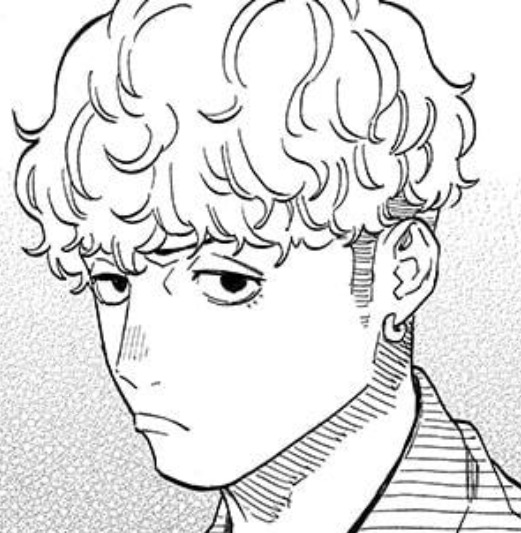
Taison unsurprisingly inherits the 泰 tai from Taizen rather than the 全 zen passed down from Zenshou. As with his master, peacefulness and tranquility are not great descriptors of Taison, either! The son is hiragana again, and as is typically the case there are quite a few kanji that could be read that way – among others, “village,” “loss,” “descendant,” “awareness,” and a specific entry on the I Ching, a Chinese divination text from the late 9th century (BC!).
Only one of those kanji actually makes an extant word put together with a kanji read as tai: 大損 taison means “heavy loss,” generally in the financial sense. However, note that the 大 tai there is the one meaning big, not the 泰 he got from Taizen – I’m going to go ahead and assume Taizen didn’t take his first-ever(?) apprentice[13] and intentionally name him after a business loss! Absent that, then, I think we’re back in the territory of hiragana commonly used as parts of names that shouldn’t be read as having inherent meaning.
13: Shiguma was described some while back as the most selective of the Arch Four, which would imply that Taizen's had several apprentices before Taison (not counting Guriko, his ward from Shiguma's lot), but given Taizen's previously unresolved issues and relative youth, I'd be surprised if he's had any prior apprentices at all! If I'm right and the manga addresses the discrepancy, I would expect a handwave in which Shiguma was merely the most selective of those whom the Arakawa school deemed skilled enough to take apprentices, a group Taizen has only recently joined.
For what it’s worth, Taison does exist as a given name in a few variations, one of which uses the same first kanji our Taison does. Its second kanji is 尊 son, meaning things like revered, noble, or valuable.
The Expelled Students
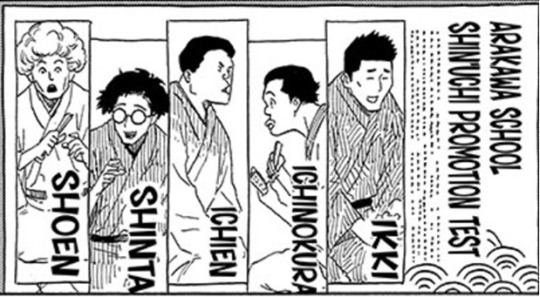
I did some thinking over the course of writing this piece about the size of the Arakawa school – all those zenza, but only two shin’uchi unaccounted for! I don’t have any major conclusions, per se, but it did make me want to look at the names of the expelled students in Chapter 1. Can we make any assumptions about them or their masters from their names? Shinta’s who the story focuses on, thanks to Akane’s perspective, and he was the only student of Shiguma’s there, but there were four other men expelled that day. Whose students were they?
Well, their names are as follows:
一き (Ikki)
一のくら (Icchinokura)
一円 (Icchien)
生えん (Shouen)
The relevant kanji here are 一 ii (in Ikki, Icchinokura and Icchien) and 生 shou (in Shouen). Going by the kanji inheritance pattern, those first three almost have to be either Isshou or Ikken’s students, as the 一 ii originated with Isshou and the only one of his students we know of that made it to shin’uchi is Ikken, who shares the kanji.
To save myself and the reader a lot of paragraphs later, I'll note here that Icchien does have a kanji we haven't seen anywhere else, 円 en, meaning circle, round, or the Japanese currency, yen. This could be his inherited kanji from a heretofore unseen Arakawa shin'uchi, leaving his 一 ii as incidental to his performing lineage, but that strikes me as deeply unlikely, given the narrative weight riding on Isshou's name. It would also raise a lot of questions about what Icchien's hypothetical teacher's own inherited name element is, who he got it from, and whether any prospective answers can be found which both don't unduly overlap other known character names and do reasonably fit into the timeline. Having written a lot of paragraphs about it that I've cut in the name of brevity and focus on properly established characters, I think the most likely option is simply that -en is a common name ending (Icchien, Shouen, and Rokuen in the Arakawa school alone, and another outside the school in Rien) but that Akane Banashi's author didn't want two names on the same poster to look visibly repetitive, so Icchien gets a kanji for his. I'll leave puzzling through other options as an exercise for the reader who really wants to chase down that particular rabbit. However, I will talk a bit more about hypothetical other Arakawa shin'uchi as potentially relevant for Shouen!
This runs into a few issues. Most importantly, I assume masters can’t judge their own students, at least not for promotion events like this.[14] That isn’t stated directly in Chapter 1 or circa Maikeru’s test, but we know it’s at least true as far as recommendations go, and Shiguma was backstage for both Shinta and Maikeru’s performances, rather than sitting with the other judges.
14: Ikken is the judge at the renseikai, an event at which he has a participating student in Hikaru, but that event is casual, not official – no one involved has advancement on the line.
Now, Shinta was the first contestant at that promotion test, so it may be that Shiguma just started backstage but went up to the judges’ area to watch the other students afterward – it’s not clear where in the building he was from the limited shots we see of him during Isshou’s expulsion announcement. Also too, for Maikeru’s test, Zenshou does comment that it’s “almost” the same judges as last time. Taizen is a new judge for Maikeru’s test, but it’s also possible that Shiguma was a judge last time, at least for some of the test-takers. If nothing else, it seems like you’d want five in case of ties – Isshou, Ikken, Zenshou and the audience vote only make four.
Another possibility is that Isshou had some student prior to Ikken who a) inherited the same kanji, b) made it to shin’uchi and c) was mature enough to have taken on students more than a decade prior to the modern day.
Showing my work on how I arrived at that timespan: it’s six years between the expulsion and the start of the story proper, an eight-month timeskip for Akane to officially make zenza, and then however many months pass between that and Maikeru’s test. That’s around seven years, then add to that however many years the test-takers had been studying prior to the shin’uchi promotion test, and that tells us how far back we’d have to be for a student of Isshou’s to have first taken students of their own. Kaisei made futatsume in two years and he’s considered a generational talent/freak of nature for it, so I hardly think five men who wound up getting expelled made it from pre-zenza studies all the way to the brink of shin’uchi promotion in only three! Thus, it has to be over ten years.
This feels unlikely to me, but it is possible. It’s been a great many years since the backstory in 1964, after all, and if this hypothetical other shin’uchi student of Isshou’s had three students expelled on the same day, well, it’s easy to imagine why they would be such a non-presence in the story so far!
If the students were Ikken’s, that would also be quite eyebrow-raising, but I could tentatively make that fit into the shape of his and Isshou’s relationship in the comic – somewhat stilted, but still close enough that they put on performances together, as well as Ikken at least checking in with Isshou regularly if he doesn’t live with him outright.
If the students were Isshou’s, well, it begs the question of why he let them attempt the test at all, if he felt so negatively about their performances, but at least he’d have unquestioned authority to expel them!
I’m curious whether we’ll ever get anything else on these men that might explain the exact details here – the truth may well be a mix of options, as any one teacher having three students up for promotion at the exact same time feels very unlikely. However, I do expect that we’ll eventually at least see the other two Arakawa shin’uchi – why even bother telling the readers that there are, specifically, seven Arakawa shin’uchi if one or both of the conspicuously absent ones aren’t going to be plot fodder for later?
On that note, the last of the four expelled students is Shouen, and he may be the better bet for exploring who one of those other shin’uchi is for the simple reason that he’s the most likely one to have come from a master we’ve haven’t met yet.
The kanji in his name, as mentioned, is 生 shou. Now, he could have gotten that from Isshou, taking us right back to the issues I raised above. He could also have gotten it from Zenshou! That still presents the issue of a teacher judging their own student, but it’s navigable as outlined above, and having a student expelled who he gave that 生 shou to might explain why every student Zenshou’s had since has been given the 全 zen! Also, if you look at the picture, you’ll note Shouen has a poofy hairstyle like Zenshou does, and we know from Zenmai that Zenshou will sometimes make oddball demands about his apprentices’ appearances. It’d be a touch strange that no one brings up that Zenshou also had an apprentice expelled at the same time Shinta was, given all the focus Zenshou puts on that expulsion as a mar on Shiguma's rep, but again, it’s possible!
However, 生 shou is also the kanji that both Isshou and Zenshou inherited from Kiroku. That being the case, while it’s highly unlikely Shouen was a direct apprentice of Kiroku’s,[15] it is possible that Kiroku had more students than we’ve seen yet, any of whom could also have inherited the 生 from him and passed it down to their own apprentices.
15: Kiroku died years ago, when Ikken was visibly a young man, Tsubakiya Shoumei was still wearing a school uniform, and Miroku V and Isshou still had fully black hair, with Shiguma just barely starting to go grey at the temple. Any students Kiroku still had would likely have been taken on by other Arakawa masters, as we see happen to Shiguma’s own students after his collapse, but I have to think they’d have made it to shin’uchi or left well before a mere six years prior to the story!
Shouen also has えん en in his name. This could mean he and Icchien share a master whose name includes 円 en, but Icchien inherited the kanji and Shouen only the phonetic sound. I think this unlikely for a bunch of reasons alluded to in my inset notes above.
The -en could also be drawing an implied connection to Rokuen – Kiroku having name endings he likes, or his hypothetical student being friendly with Shiguma and including it as a nod in his apprentice’s name – but that’s definitely getting into patchier territory.
For one thing, naming your apprentice after one of your senior-sibling apprentices instead of after yourself would be a pretty sharp departure from the standard name scheme. For another, Shouen's name ending is spelled with the modern hiragana え e, while Rokuen’s uses the archaic one, ゑ e. If it were meant as an inherited name element from someone Kiroku named (making the 生 shou incidental; still unlikely for the same reasons as it would be if Icchien's 一 ii is), or an intentional allusion to Rokuen, I would assume it would be spelled the same way as it is in Rokuen.
That all said, for all the questions it might raise about judging standards and Zenshou’s issues, I would still lean towards Shouen being one of his, if only because he had an awfully plain, unserious character design for me to immediately suspect he was being used to plant grave seeds for later plot developments around a yet-unseen master. It feels like, given the issues we’ve seen raised about Isshou’s dissatisfaction with promotion standards – to the extent that Zenshou lays into Taizen about how he made shin’uchi but hasn’t been attracting enough acclaim, so really the expulsion incident is his fault – the introduction of an unseen Arakawa shin’uchi would have to address that plot element.
To wit, have we not seen them because they don’t have the talent to be pillars of the Arakawa school like the Arch Four are, and their student or students have been similarly uninspiring? That would fit with that enormous mass of largely undifferentiated zenza whose lineages we can’t track from the renseikai! On the other hand, the Arakawa school is still said to have insanely high standards, so maybe we haven’t seen the other shin’uchi because they do have that level of talent but the expulsion incident and/or the rifts in the school have left such a bad taste in their mouth/mouths that they’ve become completely reclusive!
I could see it going either way. Shouen’s not much to write home about, but then, Shinta obviously seemed the same to many people, and several important characters in the story fiercely believed in his talents all the same! Also too, regardless of Shinta’s talent or lack thereof, Shiguma is still a huge success, so a kind of middling student doesn’t necessarily reflect on the master one way or another.
—
And that’s the main Arakawa lineage as we know it! Before I go, please enjoy a few fun tidbits about some rakugoka from outside the Arakawa school.
Other Tidbits
-As I alluded to way back at the start, 亭 tei is another kanji that indicates a family in the sense of a certain school of art. In real life, you’ll see it attached to the “family” names of performers of all sorts, from classic arts like rakugo and noh to modern theater like takurazuka. It’s also extremely common in restaurants and tea houses. Accordingly, it shows up all over the place in Akane Banashi: Sanmeitei, Konjakutei, Kenputei, Kifukutei, Hakutei, and more! Thus, 亭 tei is one kanji that you should definitely not take as an indicator of lineage connection between different schools in the series.
-The current Kashiwaya Miroku’s apprentice, Rokurou, fittingly has the same 禄 roku kanji in his name as the one I tracked through Miroku, Kiroku, and Rokuen.
-Regarding Chouchou and Asagao: Chouchou’s first “chou” is written out in hiragana, but his latter uses the 朝 kanji, which can alternately be read as asa, the first kanji in Asagao.
-Although our only two known Tsubakiya school performers, Shoumei and Hasshou, are not master and student to one another, you can still tell they have a common master “ancestor” via their shared 正 shou kanji. (Note that this is a different shou than the one Kiroku passed down to Isshou and Zenshou, 生.)
-In the Ransaika fold, Urara’s name connection to her master, Sharaku, is pretty strained. The 楽 raku in his name can be read as simply ra in other names – 楽 ra is a nanori (name-only) reading – but Urara is rendered entirely in hiragana, possibly because she has a noted distaste for her school’s name.[16] However, for what it’s worth, there are irl spellings of Urara that include the 楽 raku/ra kanji, and she does share the hiragana ra with her student Mayura (another full hiragana name). 楽 with the raku readings means things like comfort, ease, peace, and relief, by the way – it’s in the Japanese word for paradise, 楽園 rakuen.
16: Honestly, given that distaste, combined with Sharaku’s explicit sexism and Urara’s unabashed opportunism, I wonder if she’s got no love lost for the man himself, but just took his school name and tutelage because it served her ends.
-Konjakutei (Chouchou’s school) does have one related school that we can guess at – Konjakuan, of whom our example is, of all people, Rien, the Forever Futatsume himself. The first two kanji ( 今 kon and 昔 jaku) in the names are the same. Presumably one split off from the other; given the frequency of 亭 tei's use in the series and real life, as well as Chouchou's position as a representative/member of the Rakugo Confederation, I would bet that Konjakutei is the older school and Konjakuan is the newer offshoot.
-Hakutei Ryouji (the gloomy tate-zenza in Akane’s second go-round at the Yasakatei, when she’s struggling after the Karaku Cup) shares the first kanji of his school name with the Kashiwaya’s first kanji! Haku and kashiwa are alternate readings of 柏, so the Hakutei school could be an offshoot of the Kashiwaya.
-Speaking of Hakus, our only other known Kashiwaya aside from the Mirokus and Rokuen is Kashiwaya Hakushuu, who we meet in Chapter 6 when Kyouji’s teaching Akane the zenza basics. The kanji are different but related: the 白 haku in Hakushuu means “white,” and is a part of the larger/more complex 柏 haku/kashiwa kanji for “oak/cypress.” So in the same way that Koguma has that guma/kuma reading as a possible reference to the leading a in Arakawa, the haku reading in Hakushuu may be a nod to the kashiwa in his school’s name.
Tangentially, it only occurred to me in checking Chapter 6 for this post that the foreshadowing for Kyouji being an ex-Kashiwaya student does, in fact, go all that way back! He and Hakushuu are holding a futatsume event together; Kyouji notes in a bit of stray dialogue (which Akane is plainly ignoring) that this is a common thing for friends to do, even if the friend is “from a different school.” AkaBana really does have some next-level foreshadowing game.
-As one other tangent for the road, this one at least semi-connected to names in Akane Banashi, there’s a mystery fluffy-haired kid in the funeral scene in Chapter 126, oddly prominent in a line-up of otherwise known characters and holding a photograph decked in black ribbons – this would be a picture of Kiroku, though the details are fuzzy because we didn't have his face reveal yet. I saw some discussion on Reddit that the person holding the photo of the deceased at a Japanese-style funeral is probably going to be a surviving family member – possibly a spouse, but more likely the eldest child. Did Kiroku have a family? It’s certainly possible, and at his funeral is a reasonable place for his life as a rakugoka to cross over with that “normal” life, in the same way that the readership was suddenly, pointedly confronted with Shiguma’s real name on a name plaque at his hospital room.
In my very first footnote in this piece, I mentioned that, absent any other arrangements, a rakugoka’s name (and thus the right to grant that name to another rakugoka), is left as an inheritance to whoever their surviving family is. This is a complete shot in the dark, and I’m not sure the timeline lines up with Taizen’s total absence from the funeral scene, but it does seem like Isshou’s carrying some significant baggage about Rokuen inheriting “Shiguma Arakawa.” I wonder, then, if the mystery incident that soured him so utterly is indeed that inheritance, and, if so, if it will turn out to be connected somehow to that youth at the funeral.
—
If you made it all the way to the end, thanks for reading! I hope it was interesting and, if you’re a dedicated Akane Banashi fan, gave you some things you can chew on or knowledge you can apply to other characters in the story.
Below, please find a list of my resources and references for the writing of this piece. Apologies for the lack of direct links; I'd like this post to actually show up in the tags this time...................
References
For kanji meanings or whole words, I used Japan Dictionary, Jisho, and Wiktionary.
For digging up extant irl names, I used japanese-names.info (run by a native Japanese person using real Japanese resources, so a bit more reliable than your standard user-generated baby names site!), an online compilation of Japanese family names (titled simply, “Japanese surnames,” and compiled in 1939 by authors listed as I.V. Gillis and Pai Ping-ch'i), as well as just plain-old Google searches or looking through Anime News Network’s encyclopedia of 250K+ industry staff names.
Particular details on Japanese history like the orthographic reform or the infrastructure overhaul were sourced from Wikipedia. Search for Japanese script reform and 1964 Summer Olympics (Legacy section), respectively. (Those triggered or otherwise upset by animal death take note: the second paragraph of that Olympics Legacy section concludes with a mention of a terrible toll of animal death. This seems to be a woefully common thing when cities with large populations of stray animals are preparing for major influxes of international traffic and attention.)
Some details of rakugoka names and succession were sourced from an academic article on the topic, “Naming Conventions in Tokyo’s rakugo World,” by Sarah Stark at Ghent University, published 2022.
#akane banashi#akanebanashi#arakawa issho#arakawa kaisei#arakawa kaichi#arakawa ikken#arakawa hikaru#arakawa zensho#arakawa yuzen#arakawa taizen#arakawa taison#FUN FACT ALERT FOR TAG READERS:#that whole thing where rakugoka names are default-inherited by blood heirs not apprentices?#that inheritance conveys legal ownership of the name in question#and a name's legal owners have the ability to grant or even sell the ownership of the name to someone else#names can be considered “lost to the rakugo world” if the family decides for whatever reason to not bestow the name on another rakugoka#and in fact a certain myoseki was lost when ownership came into the hands of THE FUCKING YAKUZA#i can't even handle how much i want the manga with that as a hook#my writing#not the yakuza-owned rakugoka name#but#you know#the rest of it#(reportedly the yakuza group in question is amenable to selling the rights to the name but it would not be cheap)
10 notes
·
View notes
Text
“just…give me the keys” from a teenage girlfriend is so silly. not let me take your car, not i need your keys.
give me THE keys. like they share. like it’s the company car. like they’re married and both their names are on the car title when realistically the only name on that car title is his mommy because they are literally minors.
#obsessed with her#she loves her loser husband#they love acting like mini adults#stranger things#text#nancy wheeler#jonathan byers#jancy#st3#s3#i mean he might be the legal owner of the car considering it was probably very cheap but still#im not sure#lunchbreak thoughts
33 notes
·
View notes
Note
Asking this with literally zero judgement, i love you and you’re brilliant: are you addicted to opioids? how do you take them recreationally and not get hooked? (also where can i get some)
thank u anon I love u too ♡ yes I am addicted to my reddit opiates but they arent real opiates since theyre derived from kratom lol, they just operate on the same receptor in ur brain. its not like "has to be high every waking moment" level addicted but I take at least one dose every night, sometimes 2, & I get bad withdrawal symptoms if I go more than a day without them. I also fiend very hard when I'm waiting for them to arrive in the mail & end up checking the USPS tracker like every hour for days. I can fully control my WD with regular kratom powder tho
I buy the 7-OH tablets from kratomheads dot com . I take the 30s but you should start w/the 18s or you'll throw up like I did my first time lol. also if you dont live in the US & in one of the states that hasn't banned it yet then I'm afraid u are fucked but it's probably for the best bc this shit is so addictive. the good thing is since it only partially binds to the mu-opioid receptors in ur brain, it can't cause respiratory arrest & kill u the way anything derived from poppies can.
but yeah if u have addictive tendencies beware bc it feels extremely good. i can legit nod on it which is wonderful it feels so relaxing & warm & falling asleep on it is so easy & I actually sleep rly well through the night . this is just my DOC, I can go without alcohol or weed easily but 7OH gives me exactly what I want I ♡ it so much
#I used to take percs or oxy whenever I could get my hands on it so this is honestly better & it feels the same#+ legal & comparatively very cheap & safe#asks
14 notes
·
View notes
Text
To me the best part of mock trial was passing notes with co-counsel and talking shit about the opposing side. And now I'm just imagining Casey giving the most immature commentary during a trial and Alex starting to talk shit with her
this defense attorney's so bad we're getting a conviction for sure lol
Stop writing unimportant notes and focus on the direct
doesn't he look like a washed-up Adam Sandler omg
Pay attention!! But no he looks more like a sad Tom Hanks to me
#alex giving every witness fashion critique on her legal pad#“he's only making five figures. that suit is made of cheap fabric and isn't even tailored”#teddy talks#svu#calex#casey novak#alexandra cabot#alex cabot#law and order svu
49 notes
·
View notes
Text
(Father's Day, pt 4)
Bruce: Damian... Please tell me this isn't what I think this is.
Damian: I do not play games, Father.
Bruce:
Bruce: Why did you get me a birdcage with five Robins, the actual birds, in it?
Damian: You collect Robins. And you insist on all of them living here. Hence, one birdcage.
Bruce:
Bruce, muttering: I should've stopped at Jason...
#dc comics#incorrect quotes#incorrect dc quotes#batfam incorrect quotes#bruce wayne#damian wayne#father's day#Bruce collects Robins#except in this case#it's the actual bird#Bruce isn't having fun anymore#Bruce has lived with Alfred long enough to know that the man is trying so hard not to laugh#but is able to keep a perfect straight face#Alfred should have stopped them#he didn't#he's pretty sure Alfred helped on some of these#the birds had to have come from somewhere else and that isn't cheap#and the only other person who could authorize that for a minor that's not him in this house is legally Alfred
79 notes
·
View notes
Text
pisses me off soooo bad when ppl say "but if you get rid of all the illegal immigrants who will pick your crops or buss your tables or work dirty jobs that people who dont have the threat of being kicked out of the country hanging over their head can ask for more protection/higher wages in? Checkmate americans 😏" oh okay you dont care abt ppl you just want slaves to make a comeback. I forgot for a second there but thank you for reminding me
#you should be against mass deportation bc it presents and imminent and actionable violence to ppl who have little in the way of#rights or legal protection and opens up avenues of abuse#and traumatizes and displaces children#not because. like. it keeps the gardening bill cheap
8 notes
·
View notes
Text
Can’t believe he did that before deans birthday…
#why does shit always happen on his birthday..#remember when Dean was proud he killed hitler? can we revive him once more pls i have a task for him#for legal reasons that’s a joke#Dean Winchester#dean winchester birthday#anti elon musk#elon musk#supernatural#us politics#punk#to quote cheap perfume: it’s ok to punch nazis!#in fact it’s encouraged ❤️
10 notes
·
View notes
Text
I miss writing. I really do. And yet for the last... fuck how long has it been Uhh, six months??? There just hasn't been nearly as big of a pull to it for me than there has been in the past.
I blame being in a (mostly?) healthy relationship with someone who spoils me so I don't have to outsource or create the affection I crave in a vacuum 😅 Seriously my husband is cray and I adore him 🥰 Also I blame becoming a hardcore savage raider in FF14 out of the blue, and spontaneously creating a community of people in a Discord server to do it with 💜 Life has been busy, but really really good ✨
But then sometimes, like, once in a full moon, or two, my brain will come up with some bangers (that I almost always forget to put down on paper), such as:
Gaster taking Reader out to a fancy dinner or cooking something nice for her whenever he sees her eating like, ramen, or kraft dinner. He thinks that she's trying to save money or that she might be thinking she isn't worth it to have nice food, so he spares no expense in treating her. Meanwhile she just honestly likes the taste of the cheap stuff sometimes (inspired by the neon orange KD I'm having for breakfast today).
Henri informing G'raha that when you like someone, you put effort into learning their favourites. Favourite colour, favourite foods, favourite textures, smells, etc. All the sensory things. And learning their habits and schedules, too, so you can know where to find them when you want their company and learn more about how they enjoy spending their time. This is to of course make him realize that hey, yes Logan actually does like him because the dude has been putting in the work.
... And probably some other bangers I've forgotten, but those are the main two for today.
Maybe I'll write them into my fics someday. Maybe.
Miss you all 💜
#personal#update#writing#not your doll#gaster timeline#gaster x reader#adventure's end#how did I tag that before? smh#fanfic#final fantasy 14#wol insert#self-insert#its completely gay in a three way of all dudes#OH ALSO FOR LEGAL REASONS HE'S NOT ACTUALLY MY HUSBAND#we got married in FF14 lol so I call him my husband#or boyfrusband if I'm feeling playful#2 1/2 months now though 💕#also have y'all had indomie???#its so cheap even for ramen & its got so much FLAVOUURR#the 'mostly' is because we're both yandere af lol
4 notes
·
View notes
Note
G'day there, mate. I know our studios are a bit at odds n'all, but I still wanted to pop in. Our studio ain't much of anything right now, really, what with the boss bein' gone. Bit of a power vacuum right now, everyone actin' like lunatics. It's mad.
-fellblog's Ramb
No worries, luv.
(...Is it narcissistic to call another me that? ...ah, like I care...)
I dont really care much for the studio rivalries...
It's not like it'll lead to much, anyhow-
[*WOOF WOOF! A hoard of dogs run in from somewhere behind the camera.]
...Oh, hangon, the boys want to show me something...
6 notes
·
View notes
Text




#when shirley calls his bluff and wipes that smarmy smirk off his face. feminism#ohhh my gd they're so. no matter what he'll carry a torch for her until he dies#james spader#alan shore#boston legal#*#his soft little 'oh' barely a breath. he couldn't hold it in he lost himself to the very idea#his soft little whimpers and whines like when tara toyed with him or when lorraine kissed him#he's so bold and assertive he runs his mouth talking such a big game#but the moment someone steps up to him in any way he folds like a lawn chair. like a cheap suit! he can't help it he loves it#his second favorite thing in the world is being in control. his first favorite thing is feeling safe enough to give up control#very very very (very desperate) very good boy
17 notes
·
View notes
Text
half my problems would be solved if they sold regular notebook paper in a5 sizes
#i want a nice cover i can fill with cheap paper!!!!!!!!#gutting legal pads almost works but auuugghh
2 notes
·
View notes